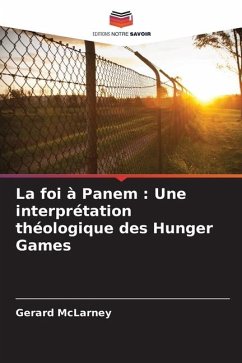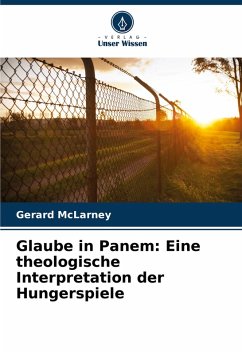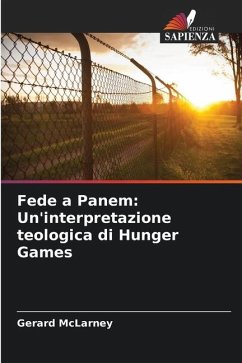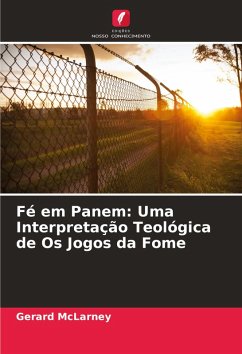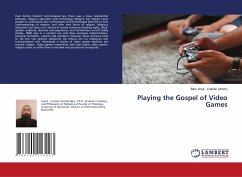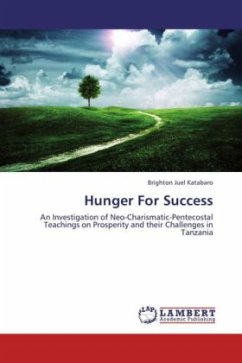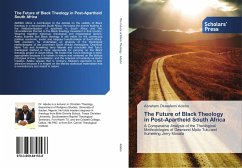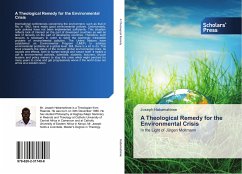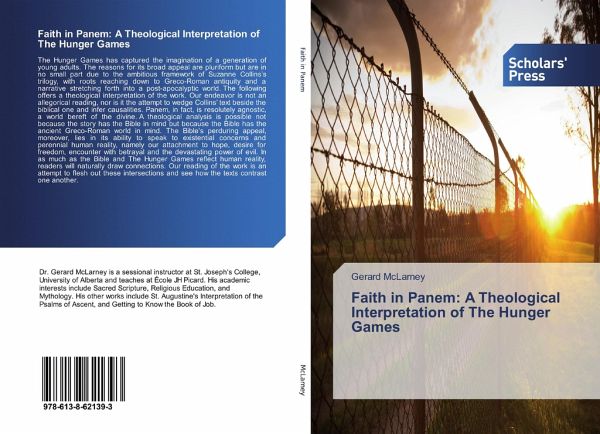
Faith in Panem: A Theological Interpretation of The Hunger Games
Versandkostenfrei!
Versandfertig in 6-10 Tagen
34,99 €
inkl. MwSt.

PAYBACK Punkte
17 °P sammeln!
The Hunger Games has captured the imagination of a generation of young adults. The reasons for its broad appeal are pluriform but are in no small part due to the ambitious framework of Suzanne Collins's trilogy, with roots reaching down to Greco-Roman antiquity and a narrative stretching forth into a post-apocalyptic world. The following offers a theological interpretation of the work. Our endeavor is not an allegorical reading, nor is it the attempt to wedge Collins' text beside the biblical one and infer causalities. Panem, in fact, is resolutely agnostic, a world bereft of the divine. A the...
The Hunger Games has captured the imagination of a generation of young adults. The reasons for its broad appeal are pluriform but are in no small part due to the ambitious framework of Suzanne Collins's trilogy, with roots reaching down to Greco-Roman antiquity and a narrative stretching forth into a post-apocalyptic world. The following offers a theological interpretation of the work. Our endeavor is not an allegorical reading, nor is it the attempt to wedge Collins' text beside the biblical one and infer causalities. Panem, in fact, is resolutely agnostic, a world bereft of the divine. A theological analysis is possible not because the story has the Bible in mind but because the Bible has the ancient Greco-Roman world in mind. The Bible's perduring appeal, moreover, lies in its ability to speak to existential concerns and perennial human reality, namely our attachment to hope, desire for freedom, encounter with betrayal and the devastating power of evil. In as much as the Bibleand The Hunger Games reflect human reality, readers will naturally draw connections. Our reading of the work is an attempt to flesh out these intersections and see how the texts contrast one another.



